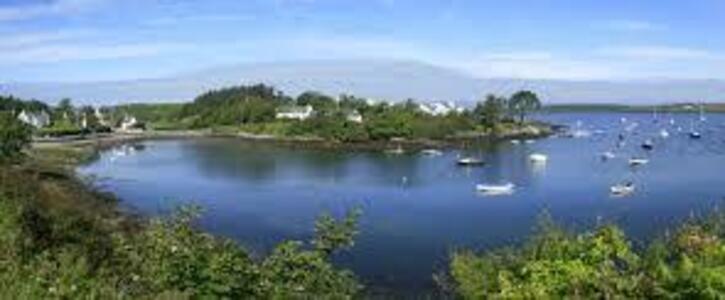50 signatures reached
To: Cork County Council
Drinking Fountains for West Cork

We are asking Cork County Council to install drinking fountains throughout West Cork.
Why is this important?
Having fresh water available publicly will help reduce the use of single use plastics.
The European Parliament recently voted to ban single use plastics. Under the proposed directive, items such as plastic straws, cotton swabs, disposable plastic plates and cutlery would be banned by 2021, and 90 per cent of plastic bottle recycled by 2025.
This is a clampdown on the top culprits of plastic products that most often end up in the ocean. Lightweight single-use items such as plastic bottles can easily travel long distances and damage marine flora and fauna.
The 2107 Waste Reduction Bill, which proposes an Irish ban on single-use plastics, and a deposit and return scheme (DRS) on plastic bottles and aluminium cans, has passed initial stages in the Oireachtas.
It takes three times the volume of water to manufacture one bottle of water than it does to fill it, and because of the chemical production of plastics that water is mostly unusable.
When you pick up a water bottle at the supermarket, hold it up and imagine it filled ¼ with oil. That’s how much in fossil fuels it took just to manufacture a single bottle.
In Ireland, we produce the equivalent of nearly 2,000 water bottles, or 5,550 disposal coffee cups, per person annually.
Ireland is the top producer of plastic waste in Europe; generating an average of 61kgs per person every year - almost double what the UK produces.
By introducing drinking fountains, we can make a conscious effort to reduce our plastic waste and protect West Cork's rich environment and food industry.
Cork County Council have told me that they are considering this initiative but I want to show them that there is significant interest and support. I hope that with enough signatures we can make this goal a reality.
The European Parliament recently voted to ban single use plastics. Under the proposed directive, items such as plastic straws, cotton swabs, disposable plastic plates and cutlery would be banned by 2021, and 90 per cent of plastic bottle recycled by 2025.
This is a clampdown on the top culprits of plastic products that most often end up in the ocean. Lightweight single-use items such as plastic bottles can easily travel long distances and damage marine flora and fauna.
The 2107 Waste Reduction Bill, which proposes an Irish ban on single-use plastics, and a deposit and return scheme (DRS) on plastic bottles and aluminium cans, has passed initial stages in the Oireachtas.
It takes three times the volume of water to manufacture one bottle of water than it does to fill it, and because of the chemical production of plastics that water is mostly unusable.
When you pick up a water bottle at the supermarket, hold it up and imagine it filled ¼ with oil. That’s how much in fossil fuels it took just to manufacture a single bottle.
In Ireland, we produce the equivalent of nearly 2,000 water bottles, or 5,550 disposal coffee cups, per person annually.
Ireland is the top producer of plastic waste in Europe; generating an average of 61kgs per person every year - almost double what the UK produces.
By introducing drinking fountains, we can make a conscious effort to reduce our plastic waste and protect West Cork's rich environment and food industry.
Cork County Council have told me that they are considering this initiative but I want to show them that there is significant interest and support. I hope that with enough signatures we can make this goal a reality.

